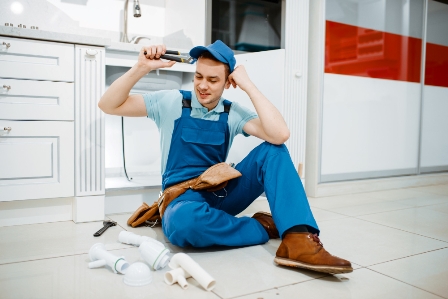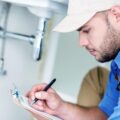In the world of homeownership, one aspect that often gets overlooked until it’s too late is plumbing maintenance. The adage “prevention is better than cure” holds true for plumbing as well. In this article, we’ll explore practical tips to avoid costly repairs by adopting a proactive approach to plumbing care.
Regular Inspection Routine
Regular inspections are the cornerstone of preventive plumbing. By conducting routine checks, homeowners can catch potential issues before they escalate into major problems. This includes examining visible pipes, joints, and fixtures for any signs of wear, corrosion, or leaks.
Proactive Leak Detection
Leaking pipes can cause extensive damage over time. Embrace technology by installing smart leak detectors that can alert you to leaks in real-time. Additionally, simple DIY methods, such as monitoring your water meter for unexplained increases, can help identify leaks early on.
Clog Prevention Strategies
Clogs in pipes can lead to backups and damage. Adopt preventive measures like disposing of cooking grease in a separate container, using drain guards, and installing screens to catch hair and debris. These simple steps can prevent clogs and keep water flowing smoothly.
Water Pressure Management
High water pressure might seem like a good thing, but it can wreak havoc on your plumbing system. Invest in a pressure regulator to maintain optimal pressure, protecting your pipes, faucets, and appliances from unnecessary stress and potential damage.
Protective Pipe Insulation
For those in colder climates, preventing frozen pipes is crucial. Insulate your pipes to shield them from freezing temperatures, and also consider insulation to protect against corrosion in warmer regions. Well-insulated pipes are less prone to damage and can extend the lifespan of your plumbing.
Appliance Maintenance Tips
Regular maintenance of appliances connected to your plumbing system is essential. Follow manufacturer guidelines for water heaters, checking for sediment buildup and potential leaks. Additionally, inspect washing machine hoses for wear and tear, replacing them if needed.
Septic System Care
For homeowners with a septic system, regular maintenance is key. Be aware of signs of septic system issues, such as slow drains and unpleasant odors. Schedule professional inspections and pumpings to ensure your septic system operates smoothly.
Avoiding Chemical Drain Cleaners
While it may be tempting to reach for chemical drain cleaners, they can harm your pipes over time. Opt for natural alternatives like a mixture of baking soda and vinegar. These solutions are effective without causing damage to your plumbing.
Upgrading Fixtures for Efficiency
Consider upgrading to low-flow fixtures, which not only conserve water but also reduce strain on your plumbing. Choose energy-efficient appliances that contribute to sustainability while lowering your water and energy bills.
Educating Household Members
Promote responsible water usage within your household. Train family members on basic plumbing care, such as avoiding flushing non-flushable items and being mindful of what goes down the drains. Small changes in behavior can make a big difference.
Emergency Preparedness
While preventive measures are crucial, it’s also essential to be prepared for emergencies. Keep a list of emergency plumbing contacts and familiarize yourself with basic DIY fixes for common issues like minor leaks and clogs.
Benefits of Professional Maintenance
Periodic professional inspections are an investment in the longevity of your plumbing system. Professionals can identify potential issues that may go unnoticed during routine checks, saving you from costly repairs in the long run.
Environmental Considerations
Incorporate sustainable plumbing practices into your routine. This includes fixing leaks promptly, using water-saving appliances, and participating in water conservation efforts in your community. Small steps collectively contribute to a more sustainable future.
FAQs (Frequently Asked Questions)
We recommend conducting a thorough plumbing inspection at least once a year.
Chemical drain cleaners can cause long-term damage to pipes. Opt for natural alternatives for a safer option.
Proper water pressure regulation prevents unnecessary stress on pipes and appliances, extending their lifespan.
While basic DIY fixes are possible, it’s crucial to have professional contacts for more severe plumbing emergencies.
Conserving water at home involves fixing leaks promptly, using water-efficient appliances, and participating in community initiatives for water conservation.
Conclusion
Preventive plumbing measures are a proactive and cost-effective way to avoid major repairs. By incorporating these tips into your routine, you not only protect your home from potential disasters but also contribute to a more sustainable and efficient plumbing system.


